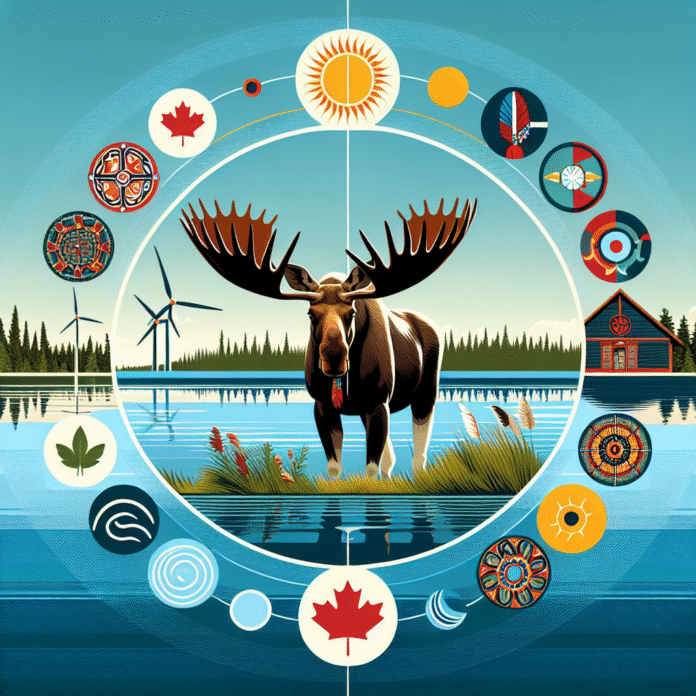Moose Protection and Anishnabe Governance in Climate Policy
Moz Kipiwa-n Acitcj Anishnabe Onakinagewin Oja Aki Canadian Climate Institute
Moose Conservation and Anishnabe Governance as Climate Policy
The intersection of wildlife conservation and Indigenous governance plays a pivotal role in addressing climate change, particularly when it comes to moose populations in Canada. The Anishnabe people, with their deep-rooted knowledge of the land and ecosystems, have long recognized the importance of moose not only as a vital resource but also as a symbol of biodiversity and ecological balance.
Understanding Moose and Their Ecological Role
Moose (Alces alces) are an integral part of the boreal forest and wetlands, serving as a keystone species in various ecosystems across Canada. Their browsing habits shape vegetation patterns and influence the habitat of numerous other species. However, moose populations are currently under threat due to climate change, habitat loss, and increased predation. As temperatures rise and precipitation patterns shift, moose face challenges such as heat stress and parasite infestations, which can impact their health and reproductive success.
The Anishnabe Perspective on Stewardship
The Anishnabe worldview emphasizes a holistic relationship with nature, grounded in respect and reciprocity. This perspective advocates for the protection of moose and their habitats as part of a broader commitment to environmental stewardship. Traditional ecological knowledge (TEK) provides valuable insights into sustainable practices and the interconnectedness of species and ecosystems, which can inform contemporary climate policies.
By integrating Anishnabe governance principles into climate strategies, we can develop more effective conservation measures that prioritize the health of moose populations and the ecosystems they inhabit. Community-led initiatives emphasize the importance of collaboration among Indigenous communities, government agencies, and conservation organizations to create adaptive management strategies that respond to the realities of climate change.
Policy Implications and Collaborative Approaches
Addressing the challenges facing moose populations requires a multifaceted approach that includes habitat protection, sustainable hunting practices, and adaptive management strategies informed by TEK. Policymakers must engage with Indigenous communities to incorporate their knowledge and governance systems into climate action plans. This collaboration not only enhances the effectiveness of conservation efforts but also respects Indigenous rights and sovereignty.
Furthermore, investment in research and monitoring programs that focus on moose populations can provide critical data to inform adaptive management. This includes understanding the impact of climate change on habitat availability and food sources, as well as tracking population dynamics and health.
Conclusion: A Path Forward for Moose and Climate Resilience
The protection of moose and the integration of Anishnabe governance into climate policies represent a vital intersection of culture, ecology, and climate action. By recognizing the significance of moose within the broader ecological framework and honoring Indigenous knowledge systems, we can foster resilience in both wildlife populations and communities facing the challenges of climate change.
In conclusion, proactive engagement with Indigenous governance and traditional ecological knowledge is essential for crafting effective climate policies that not only safeguard moose populations but also promote the health of ecosystems and communities across Canada. As we work towards a sustainable future, the lessons learned from the Anishnabe people can guide us in respecting and protecting our natural world.


